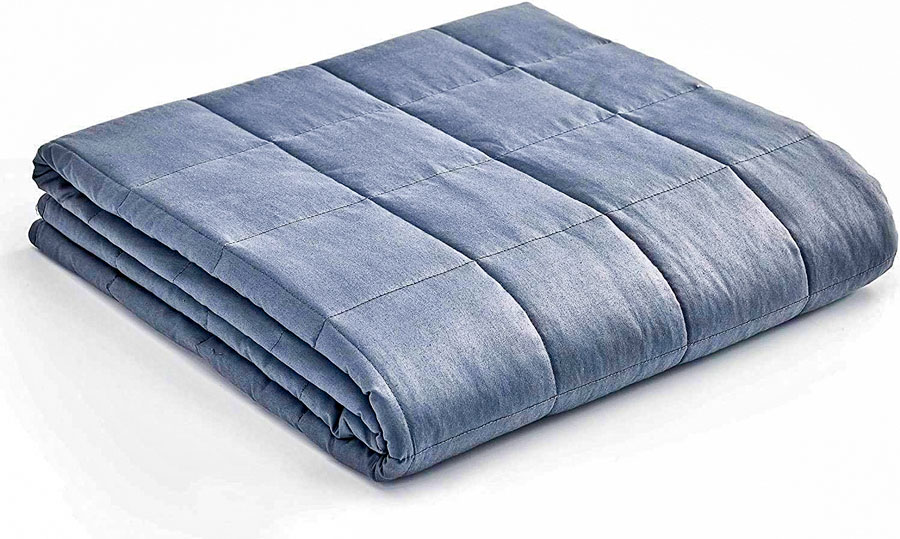Weighted blankets; winter warmth and therapy
By Lisa Nicklanovich; courtesy photo

“It’s like a hug,” said a resident about her weighted blanket. More than comforting, research suggests weighted blankets may benefit people with anxiety, autism, ADHD and insomnia, among other conditions.
Filled with poly pellets, weighted discs, or glass beads sewn into sections, weighted blankets apply pressure that mimics a therapeutic technique called deep pressure stimulation that relaxes the nervous system. Pressure on the body can increase the release of serotonin in the brain, providing a sense of calm and well-being.
Although further research needs to be done, studies have found promising results for people who have used weighted vests and blankets for many types of therapy. Many people claim weighted blankets help with insomnia, falling asleep and staying asleep. One resident said it took her a while to get used to her weighted blanket, another said she slept, “like an angel” the first night she used one.
The feeling of warmth and security from a weighted blanket can provide a calming, soothing effect to those of us who feel anxious or stressed, which is many right now.
Resident Jennifer Baldwin said a doctor recommended a weighted blanket years ago for her son. Baldwin noted that she had one made for her son so it was the right size and weight, and then got one for herself adding that, “it’s been a real help,” with anxiety. Often parents see the benefits of weighted blankets for their kids and try them out for themselves.
Another resident said, “I have osteoporosis and one main requirement is that you need to do weight-bearing exercise. I had just bought a weighted vest and a friend suggested I try a weighted blanket. Immediately, I noticed that I tend to sleep a lot better. I’m not sure how much it’s helping my bones, as I’m doing many things to heal myself. But, just helping me sleep is totally worth it.”
When choosing a weighted blanket, the recommended weight is about 10 percent, or slightly more, of your body weight. So, for example, a 150-pound person should choose a 15-pound blanket. Since the blankets come in specific weights, the recommendation is that if you are between sizes, go with the heavier weight. As for the size, choose one that will cover you so if you toss and turn, you’ll still be under the blanket.
According to manufacturers, weighted blankets should not be used for toddlers younger than 2 years old. Always consult your pediatrician before trying a weighted blanket on a child. Also, weighted blankets may be unsuitable for people with certain conditions, including sleep apnea, asthma and claustrophobia.
If you’ve tried everything to get a better night’s sleep, or you are feeling stressed or anxious, a weighted blanket might just do the trick.